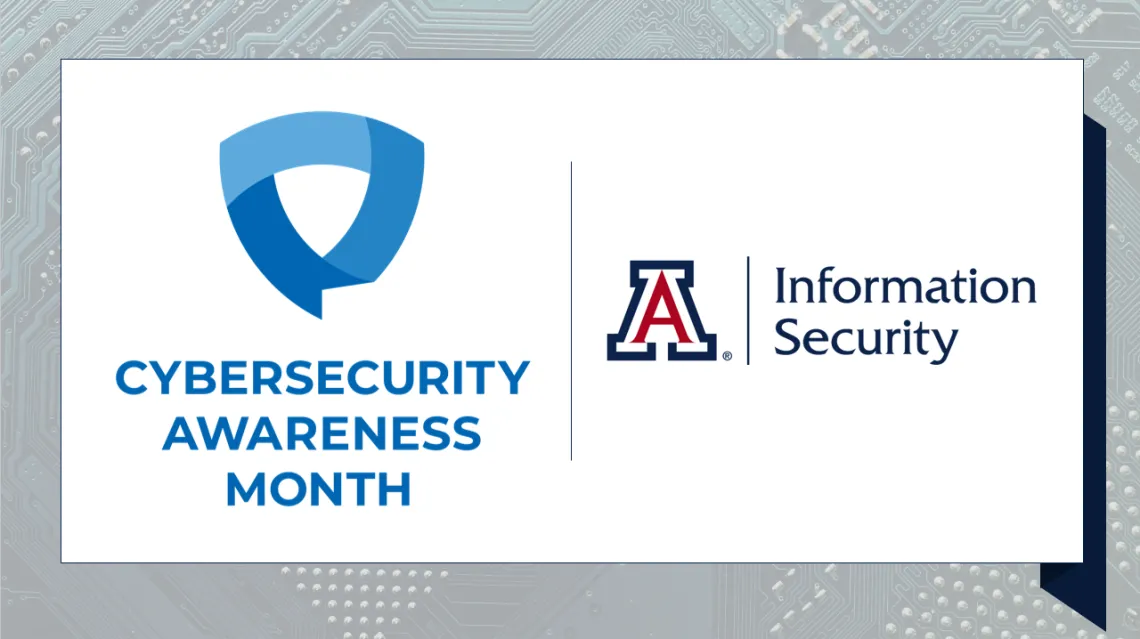National Cybersecurity Awareness Month 2022
Stay Safe Online

October is Cybersecurity Awareness Month and a time to remember the importance of staying safe online. While the University Information Security Office (ISO) has worked diligently to enhance our information security best practices and protocols, we need to remain alert to potential cybercrimes. Whether you are working in the office or remotely, it's important to use safe computing practices.
In recognition of Cybersecurity Awareness Month, the ISO is providing helpful tips and resources, including an educational video, phishing quiz and Zoom backgrounds to continue to educate and empower the campus community to protect their personal data.
Did you know?
- Approximately 90% of data breaches occur because of phishing, and about 65% of cyberattacks use spear phishing as their primary attack vector.
- 84% of US-based organizations say fewer employees fall for phishing due to employees completing security awareness training.
The University's annual information security awareness training (available in EDGE Learning) was recently updated to include latest information about social engineering and spear-phishing attacks seen on campus, ways to recognize and thwart these attacks, and actions to take if your personal information has been compromised. Log in to Edge Learning to ensure your information security training is current.
Follow these important Information Security tips
- Be skeptical of emails with urgent requests or threats.
- If you receive a questionable email:
- Do not click links, open attachments, or respond to any requests.
- Do not respond if it contains an unusual request from a supervisor, such as purchasing a gift card. Instead, contact the alleged sender via an alternate form of communication (e.g., phone call) to verify if the request is legitimate.
- Do not approve unsolicited "push" notifications to your phone or other devices. Rather, if you receive an unsolicited push notification request, change your password immediately.
- Report a suspicious email by forwarding it to phish@arizona.edu. Check the ISO Phishing Alerts page for recently reported phishing emails.
Sources for phishing statistics: Cybertalk

